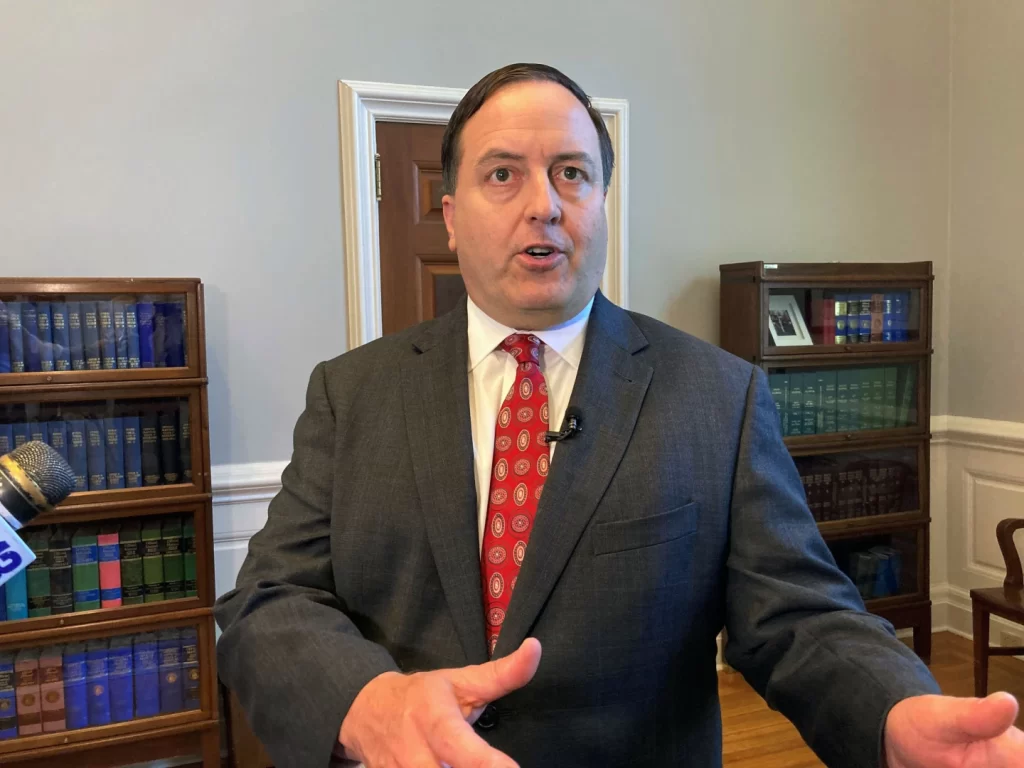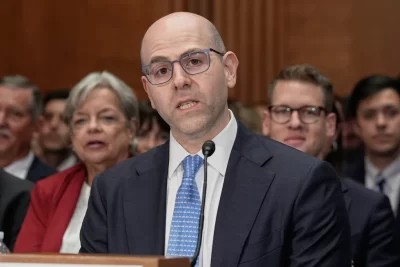
COLUMBUS, Ohio — The resignation letter was short and direct.
“I can no longer be under an oath to uphold the New Constitution of Ohio,” wrote Sabrina Warner in her letter announcing she was stepping down from the state’s Republican central committee.
It was just days after Ohio voters resoundingly approved an amendment last November to the state constitution ensuring access to abortion and other forms of reproductive health care. For many, the vote was a victory after the U.S. Supreme Court overturned a constitutional right to abortion in 2022.
For Warner, a staunch abortion opponent, it meant she could no longer stand by the Ohio Constitution she had proudly sworn an oath to uphold just over a year before.
Throughout modern American history, elected officials have sworn oaths to uphold constitutions and said the Pledge of Allegiance without much controversy. In a handful of cases recently, these routine practices have fallen victim to the same political divisions that have left the country deeply polarized.
Disagreements over abortion rights, gun control and treatment of racial minorities are some of the issues that have caused several political leaders to say they cannot take an oath or recite the pledge.
Some Republicans, including Missouri Secretary of State Jay Ashcroft, a candidate for governor, point to amendments enshrining abortion rights in state constitutions. Ohio’s protections passed last fall, and advocates are proposing an initiative for the Missouri ballot this year.
Warner signed off her resignation letter, effective two days after Ohio’s vote, with a biblical reference to “the cowardly, the vile, the murderers” and more being “consigned to the fiery lake of burning sulfur.” She did not return messages seeking comment.
In Tennessee this month, Democratic Rep. Justin Jones declined to lead the pledge during a legislative session. He gained national attention after being one of two Black lawmakers whom Republicans briefly expelled from the state House last year after he and two other Democrats participated in a demonstration advocating for gun control from the House floor, outraging GOP members because it violated the chamber’s rules.
Tennessee House members are tapped to find a minister to lead a prayer before the start of a session and then to lead the chamber in the pledge to the American flag. Just before he was to do so, Jones submitted a handwritten note to the House clerk that read, “I prefer not to lead the pledge of allegiance.”
His refusal came as he has criticized his Republican colleagues for being racist and focusing on what he said are the wrong issues, such as targeting the LGBTQ+ community rather than addressing gun control nearly a year after six people, including three children, were killed in a school shooting in Nashville.
While another Democratic lawmaker, an Army veteran, led the pledge without commenting on Jones’ refusal, Republicans quickly expressed their outrage at Jones’ decision. GOP Rep. Jeremy Faison called Jones’ refusal to say the Pledge of Allegiance a “disgrace.”
“In my opinion, he should resign. That is an embarrassment to veterans and to people who have come before us,” Faison said.
Jones, responding later to the Republican criticism, said he “couldn’t bring myself to join their performative patriotism as they continue to support an insurrectionist for president and undermine liberty and justice for all.”
Jones’ stance recalled a similar one in 2001, when then-Tennessee Rep. Henri Brooks said she was chastised by Republican leaders for refusing to join her fellow lawmakers in the pledge. Brooks, who is Black, told media outlets at the time that she hadn’t recited the pledge since being in the third grade and declined to do so because the American flag represented the colonies that enslaved her ancestors.



